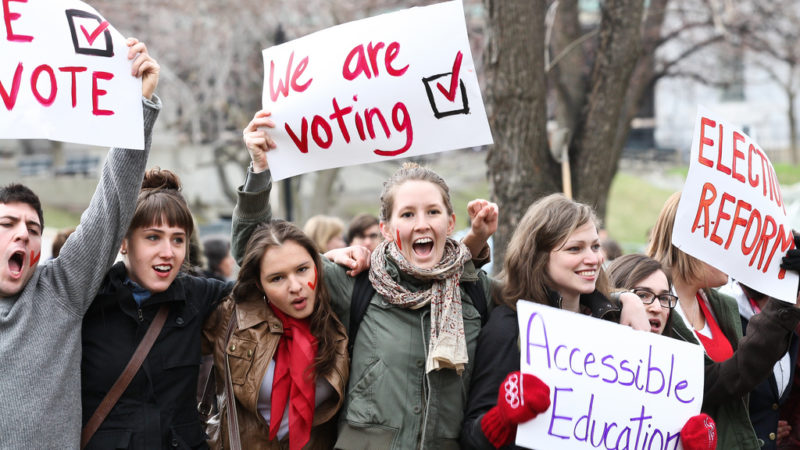Labour cannot hope to win back these voters if it fixates on a tiring debate about Brexit versus Corbyn.

A tedious and reductive debate has been underway since the exit poll first dropped at 10 pm last night.
Is it Brexit or Corbyn that is to blame for Labour’s biggest defeat since 1935? The leadership’s script sought to pass the blame solely onto Brexit while moderates pointed to Corbyn’s unprecedented unpopularity with voters and the stories from the doorstep of disdain for Labour’s leader.
The truth is that both have an element of truth to them yet neither provide a full explanation of Labour’s failure to win a majority at the fourth time of asking. The problem runs far deeper than Corbynism although his period at the helm of the party has clearly exacerbated existing trends.
In examining the Brexit argument, it is clear that Labour lost most badly in Leave seats while it picked up Putney in wealthy Remainia. Yet across the country, Labour’s vote share fell in both Leave and Remain areas: by 10.4% in strong Leave areas and a more modest 6.4% in strong Remain areas. The victory in Putney owes more to a dramatic collapse in the Tory vote than anything else.
The biggest problem for Labour on Brexit was that its eventual position did not bear scrutiny and left Labour’s front benchers squirming whenever they were confronted – unable to say whether they would support a revised deal or Remain when they put the choice to the country. What was needed was a clearer position, confidently defended.
On leadership, Corbyn’s numbers were truly atrocious. On the eve of the election, just 29% of voters thought that he would make the most capable Prime Minister, down 7 percentage points on where he had got to in 2019. If voters were willing to give him the benefit of the doubt that summer, they were not now. As Nick Cohen wrote last night:
“A vast poll of 12,000 voters, released tonight, showed Jeremy Corbyn was by far the single biggest reason voters gave for deserting Labour. Of those who voted Labour in 2017 but were less than 50 per cent less likely to vote Labour now, Deltapoll found the overwhelming reason people gave was they ‘don’t like Jeremy Corbyn’ with 46 per cent agreeing with that blunt statement.”
But there is a bigger issue, beyond the short-term issues of Brexit and Corbyn: the long-term decline in Labour’s support among working class voters. At the high water-mark in 1997, Labour had 59% support among DE voters and a healthy 38 point lead over the Conservatives. Both these figures have fallen at almost every subsequent general election. Yes, there was a small upward blip in 2017 but Labour’s performance with that group is now worse than it has ever been.
Ipsos MORI’s eve of election poll which predicted a 42%-34% lead for the Conservatives, shows the Tories leading in every social class including, for the first time in a general election, those from social class DE.
If the party does anything during its “period of reflection” it must understand how it can win back its working class voters. What are these communities most worried about and what can be done to allay those fears? Which of its shopping list of policies genuinely appeal and which are seen as fantasy? And most crucially, which of the roster of potential future leaders most resonates with this group of voters?
Labour’s task is unenviable. Like most social democratic and democratic socialist parties it is struggling to knit together a coalition of university graduates in cities and working class voters in former industrial areas. But it cannot hope to win back these voters if it fixates on a tiring debate about Brexit versus Corbyn.
Will Straw is the founder of Left Foot Forward
To reach hundreds of thousands of new readers and to make the biggest impact we can in the next general election, we need to grow our donor base substantially.
That's why in 2024, we are seeking to generate 150 additional regular donors to support Left Foot Forward's work.
We still need another 124 people to donate to hit the target. You can help. Donate today.




11 Responses to “Labour’s “period of reflection” must be deeper than Brexit versus Corbyn”
nick W
we all knew what was coming even the most ardent optimists thought we might reach another hung parliament, the tragedy is we are not really going to move forward, many of the new labour `MPs and there are a good number are on the left of the party, great we can all talk to ourselves and some I feel, will feel that political purity is a greater good than winning power, I believe thats some of the reasoning behind JC not going right away, those around him will be considering if its better to have a rump party of loyalists than a party aiming for power, and hoping that sometime in the far off future they will Win power.
JC has now failed twice, a mini JC clone will get us nowhere, neither will yet another metro lawyer,
The constant speaking to our core support has failed we either reach out to the middle ground or lose again.